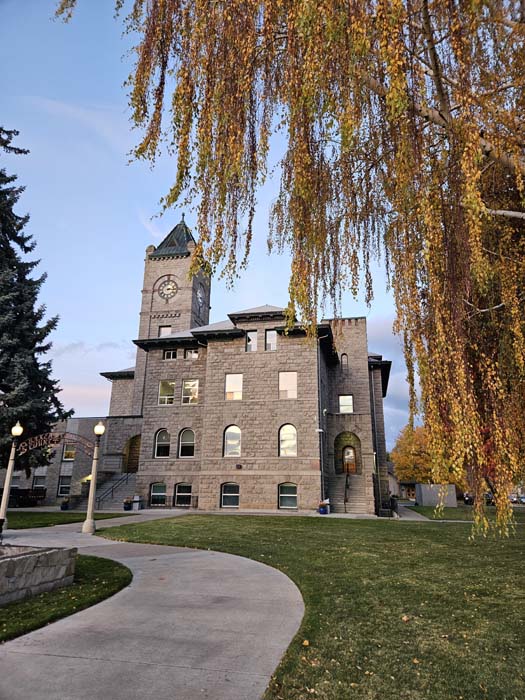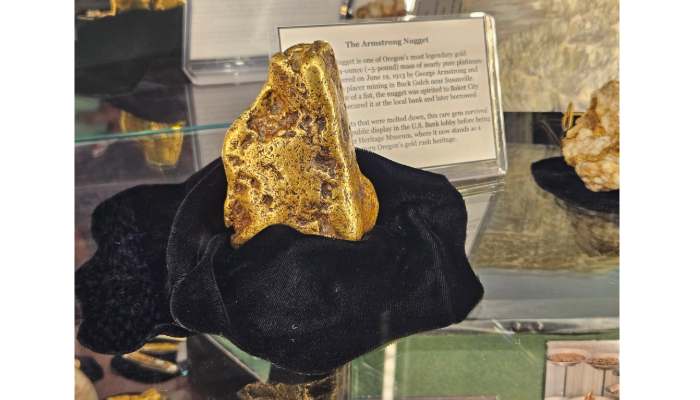Baker City finalist for factory that could use juniper
Published 12:00 am Thursday, April 17, 2008
By ED MERRIMAN
Trending
Baker City Herald
To the delight of ranchers struggling to cope with a growing juniper tree infestation, Baker City is one of six finalists under consideration for a wood pellet or fire log manufacturing plant.
As part of a quest to find the best location for a wood pellet or fire log plant east of the Cascade Range, Chris Sharron, owner of West Oregon Wood Products, attended Tuesday’s Baker County Juniper Management Workshop.
Trending
andquot;I’m looking into the potential of building a plant if enough fiber is available,andquot; said Sharron, who already owns processing plants in Western Oregon.
The westside plants produce wood pellets, fire logs and animal bedding products from wood fiber for the company’s core markets in Oregon, Washington and California.
But Sharron said that with transportation costs rising, he’s looking to build one and possibly more plants in Eastern Oregon to more efficiently serve growing markets in Idaho, Utah and Colorado.
andquot;We’ve honed it down to about a half-dozen areas where the opportunity looks really promising,andquot; Sharron said, adding that a final decision could be made within six months.
andquot;Once the decision is made, roughly speaking, it will take about a year to go through the permitting process and get a plant built and people pushing buttons,andquot; Sharron said.
The size of the wood processing plant depends on the quantity of juniper and other wood fiber available in the area at an affordable price, he said.
A 20,000-ton plan would cost about $3 million to build and would employ between 15 to 20 people in wood processing, packaging and shipping positions.
A 40,000-ton or larger plant would cost $10 million at the top end and would employ between 30 and 40 people, depending on how much automated the factory is, Sharron said.
When it comes to the willingness of local officials to help bring a wood processing plant to town, Sharron said Baker City has a definite advantage over other communities.
andquot;Baker City specifically has been very proactive in their welcoming us with open arms,andquot; Sharron said, mentioning Jennifer Watkins, Gene Stackle and others at the Baker City Community Development Department.
andquot;They really put their foot forward to do whatever they possibly can to help make this come to fruition,andquot; Sharron said.
andquot;The economic development team really acts as a liaison between the community and the business,andquot; Watkins said. andquot;In this case they need to know about the supply of product.
andquot;One of the things we have been working on is making sure they can cut the (juniper) that is out there,andquot; Watkins said.
andquot;We’ve been communicating with the Forest Service and private landowners to see how much of the supply that’s out there can be cut,andquot; Watkins said. andquot;I think we are going to be able to meet the needs.andquot;
During the juniper management workshop, speakers with the Oregon State University Extension Service, Natural Resources Conservation Service, Baker County Soil and Water Conservation District, Oregon Department of Agriculture, Baker County Weed Board, Foster Ranch and others provided information and demonstrations on various options from eradicating Western juniper, ranging from fire to bulldozing or cutting it down with chain saws, mechanical cutters and harvesting equipment.
Baker County ranchers including the Foster family have been participating with various agencies to implement juniper management cost-share programs designed to improve stream flows and soil moisture levels, which in turn increases grass available for cattle, horses, deer, elk and antelope.
So far, the emphasis of those programs has been on the removal of juniper trees, with some ranchers crushing the juniper slash and letting it lay or burning it. However, Watkins said a wood pellet or fire log plant of the sort Sharron envisions would provide a potential market for juniper fiber.
OSU Extension Agents Cory Parsons and Tim Deboodt told those attending Tuesday’s juniper management workshop and field trip to the Foster ranch that there’s more than enough juniper growing in Baker County and other areas of Northeastern Oregon to supply one or more pellet or fire log plants.
In Baker County alone, Parsons said juniper trees have spread across more than 218,000 acres, and the figure continues to expand every year.
In the five-county region, Parsons said there’s approximately 1.4 million cubic feet of juniper available for harvest.









